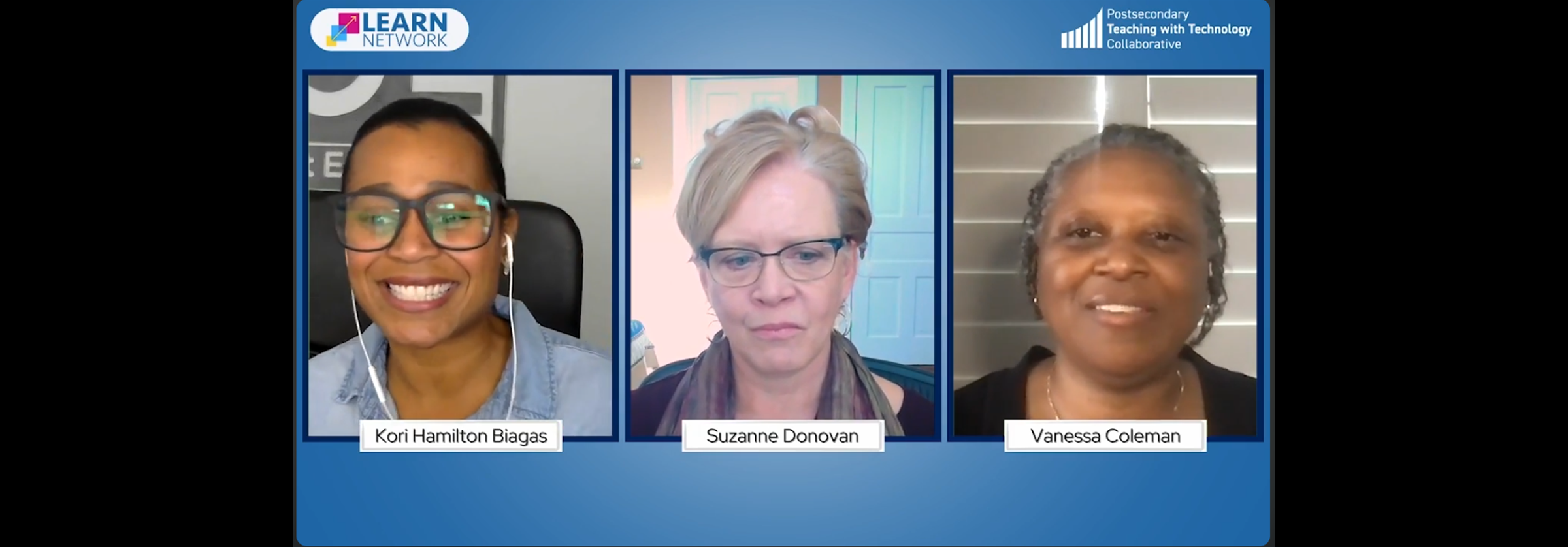Since the pandemic, the urgency of designing and scaling evidence-based products to support learning recovery has become more pronounced. Educational institutions are grappling with unprecedented disruptions and widening achievement gaps, making the need for effective, research-backed interventions critical.
Suzanne Donovan, executive director of the Strategic Education Research Partnership (SERP) Institute, and Vanessa Coleman, co-director of SRI’s Center for Education Research & Innovation, recently sat down for a conversation with LEARN Network’s Kori Hamilton Biagas to discuss scaling innovations that disrupt inequity and create system-level change.
In this video from the Learn Network’s Stories of Scaling series, Suzanne Donovan, executive director of the Strategic Education Research Partnership (SERP) Institute, and Vanessa Coleman, co-director of SRI’s Center for Education Research & Innovation, sit down for a conversation with LEARN Network’s Kori Hamilton Biagas.


